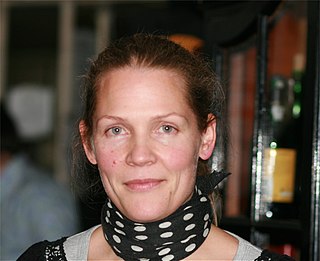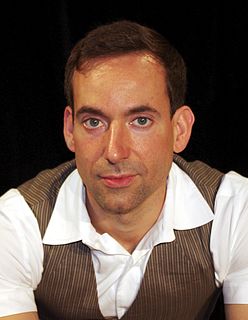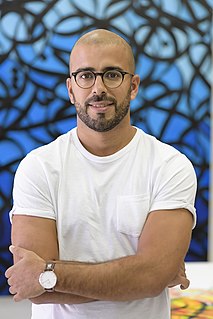A Quote by Hassan Blasim
I still write in literary Arabic but I try to rid it of the rhetoric, the symbolism, and the stuff that ordinary people don't understand.
Related Quotes
I'm a brown girl from a Punjabi pind raised in Toronto. I don't expect literary critics and purists to understand the nuances of my experiences, and the experiences of the people around me... And my tradition holds that there is a magic in the written word. So how I write, what I write of, and why I write all comes naturally.
The moment in the account of Adam and Eve in the book of Genesis is when they realize they're naked and try and cover themselves with fig leaves. That seemed to me a perfect allegory of what happened in the 20th century with regard to literary modernism. Literary modernism grew out of a sense that, “Oh my god! I'm telling a story! Oh, that can't be the case, because I'm a clever person. I'm a literary person! What am I going to do to distinguish myself?...a lot of modernism does seem to come out of a fear of being thought an ordinary storyteller.
I've seen it personally that people have a natural sensibility to Arabic script. I don't know it if it's because of the shape, I don't know what it is in this script that makes it so universal. But even if you don't understand it, you still have this feeling; you can feel the piece of art in front of you.
Literary gentlemen, editors, and critics think that they know how to write, because they have studied grammar and rhetoric; but they are egregiously mistaken. The art of composition is as simple as the discharge of a bullet from a rifle, and its masterpieces imply an infinitely greater force behind them.




































